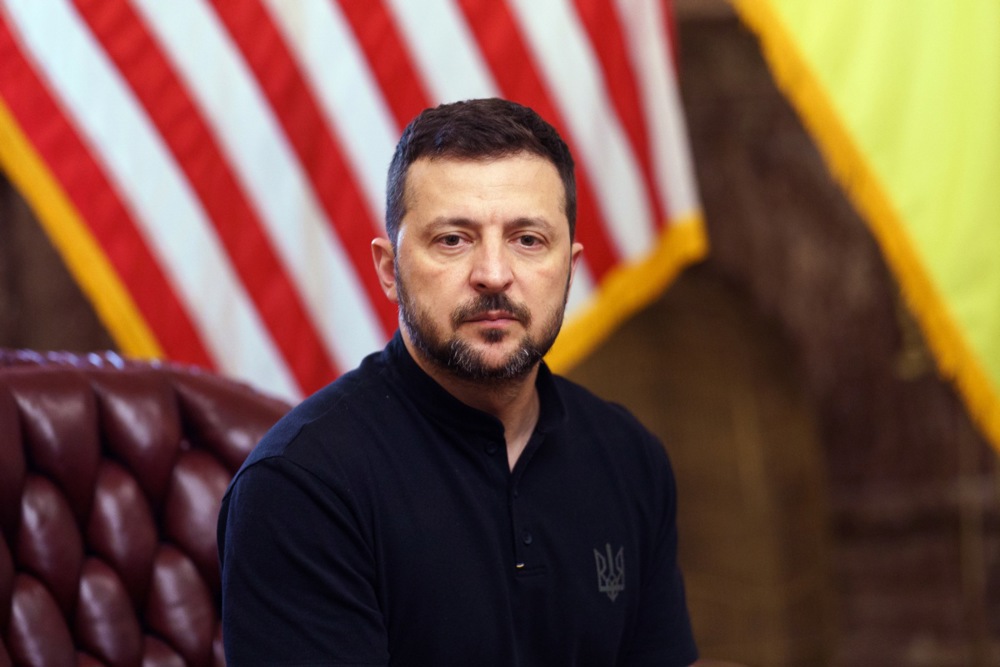Facing increasing difficulties in paying for its war with Russia, Ukraine has proposed raising its income taxes by between 1.5 and 5 percentage points.
Ukraine’s income tax level is currently at 18 per cent. With the rise in taxes, personal income taxes could provide the government with up to an annual €3.4 billion.
Other new financing possibilities President Volodymyr Zelensky’s government has proposed include new borrowing (in the form of bank loans) and reallocating existing expenditures in the budget.
Together, those two measures could provide Ukraine with an additional €12.4 billion a year for the war effort.
The European Commission has recommended increasing the size of the European Union’s contribution, by drawing on ‘green taxes’ within the EU.
Money the EU spends in Ukraine is audited by the European Commission.
In Ukraine, the Cabinet of Ministers has approved draft legislation to amend its national budget and the tax law.
As well as direct taxes, Ukraine also has several indirect taxes.
All jewellery sold in the country is subjected to a 30 per cent surcharge which goes directly to state coffers. The same applies to the purchase of private vehicles, at a rate of 15 per cent.

Kyiv’s need for funds is increasingly desperate.
It cannot sustain its current level of military spending without increasing the treasury’s revenues.
There is also the possibility of a substantial increase in military expenditures, if the government succeeds in its effort to recruit hundreds of thousands of Ukrainians abroad into the army.
Official forecasts place this year’s total government spending at €42.2 billion. According to the latest estimates, this expenditure will increase by 30 per cent next year.
“The needs in the security and defence sector are growing,” says the Ministry of Finance in a statement.
“To finance our resistance against the aggressor, we can rely on our own resources, the most important of which are taxes and loans within the country. This will protect our security and bring us closer to victory,” it says.
According to the Ukrainian General Command, Ukraine’s army has fought more than 100 battles in the last 48 hours.
The Ukrainian government’s proposals are also a response to a worrying trend for Kyiv: declining aid from Western countries.
Germany has lowered its projected aid to Ukraine by €4 billion between 2024 and 2025.
More substantially, the possibility of a Trump victory in November’s presidential election could bring an end to a period of unprecedented spending by the Biden administration in Ukraine.
Accordingly, President Volodymyr Zelensky wants to reduce Ukraine’s dependence on third countries as much as possible.
In May 2023, Ukraine’s government and Philipp Hildebrand, from the US BlackRock Financial Market Advisory, signed an agreement to create a Ukrainian Development Fund (UDF).
This new financial institution will work to mobilise funds for the country’s reconstruction.
EU leaders have expressed annoyance over “peace trips” to Ukraine, Russia, and China undertaken by Hungarian Prime Minister Viktor Orbán. https://t.co/yttopchOIZ
— Brussels Signal (@brusselssignal) July 8, 2024

![Kyiv mayor Vitali Klitschko appears to have turned on President Volodymyr Zelenskyy, telling a Western media outlet that the Ukrainian president will be forced to "pay for [his] failures" both before and during the war. (Photo by Dmytro Larin /Global Images Ukraine via Getty Images)](https://brusselssignal.eu/content/uploads/2023/12/GettyImages-1813372142.jpg?fit=crop&crop=faces&q=75&auto=compress,format&w=630&h=420)



